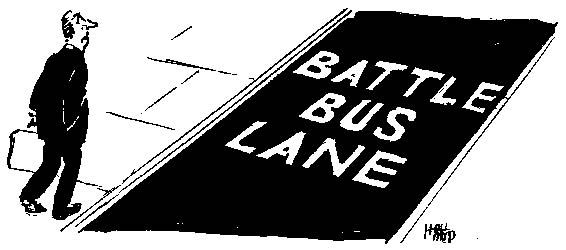I think it’s about time someone explained to women how to watch war films.
I think it’s about time someone explained to women how to watch war films. They just don’t get them, in much the same way men don’t get handbags or expensive girl-shoes. They think it’s all boring and that the characters all look the same, so how can you care about them? They think there’s far too much shooting and killing and violence and horror and bang bang bang and it’s like watching paint dry. They’d rather let you watch on your own, if you don’t mind, while they go upstairs and read in the bath.
This is how my wife feels about The Pacific (Sky Movies Premiere, Monday) and I expect it’s how your wife/mistress/girlfriend/daughter/mother feels about it, too. They think they’re taking the clever, sophisticated position here, while you, the man, are basically a Neanderthal enslaved by your primal killing instincts. Actually, though, in this case it’s the girls who are being obtuse. What they’re in fact demonstrating here is an utter failure not just of imagination but also of the thing they’re supposed to be best at — empathy.
I’ll give you an example from part two of The Pacific, which, as you must surely be aware by now, is the Steven Spielberg/Tom Hanks follow-up to Band of Brothers, with US Marines fighting Japs on Pacific atolls instead of US Airborne fighting Germans in northern Europe. I’m thinking of the 12-minute battle scene where dug-in Marines are desperately trying to hold the line against numerically superior Japanese.
Superficially, it is indeed groups of indistinguishable men in olive drab with big helmets in the dark mowing down Japs who are only briefly visible by the muzzle flash of the guns that are killing them. There’s a telling moment that even acknowledges this: a rifleman gazes in awe at the .30-cal machine-gunner next to him traversing right and left firing burst after burst, as if to say, ‘Jeez. I never thought one guy could kill so many Japs.’
The mistake girls make is to assume that its main boy appeal is the quasi-pornographic thrill we get from seeing so many Japs wasted. But, in fact, that’s mere salad dressing. The real thing that keeps us on the edge of our seats, mouths open, eyes agog, feet jiggling nervously is that we’re all thinking, ‘There but for the grace of God go I!’
We’re desperately excited about that .30-cal machine-gunner and have a personal investment in his Jap-mowing success because we know how pivotal he is in holding the line, what a disaster it will be if his gun jams, and exactly what will happen if the enemy overruns the position.
And this really matters because in our heads we ARE those Marines. We want them to survive this Guadalcanal hell every bit as much as they do because their suffering is our suffering, their fears are our fears. That’s why, in the build-up scene, when their officer tosses them a pack of his own (extremely valuable) cigarettes and they look at one another and say, ‘We really ARE fucked,’ we shudder in communal dread. That’s why we understand totally how important it is when one Marine rushes forward in a lull to shift some Japanese bodies so as to give his buddies a clean field of fire in the next attack: on these small acts of routine heroism does the entire company’s survival depend.
I have a Royal Marine friend called Mickie, who fought both the Germans and the Japanese, and he’s in no doubt that the latter were worse because of their Emperor-worshipping suicidal zeal. He didn’t see them as subhuman, though. Merely as an especially fierce and effective opponent to be exterminated as quickly as possible if he were to have any hope of getting out alive. (Which, at Kangaw, he only just did.)
This, I think, is a point Steven Spielberg misses when he makes his PC point about the Pacific war, unlike the northern European one, being a war of crude racism. Sure, at the beginning, the Allies grossly underestimated the Japanese as bucktoothed, short-sighted, stunted yellow inferiors. But by Kohima in ’44 (and, my goodness, I’m enjoying Fergal Keane’s brilliant new book on the subject) they had a very healthy respect for them.
Sure, as the Marines did at Guadalcanal, Peleliu, Iwo Jima and Okinawa, and as our boys did in Burma, the Japs were slaughtered like rats in their holes with grenades, artillery, bayonets and flamethrowers, and entirely without mercy. This, though, was as much to do with pure pragmatism as with raw hatred. When you know that if you get captured you’re likely to be tied to a tree and used for bayonet practice, when you know that any wounded Jap is likely to take you with him with his grenade, it becomes entirely commonsensical to fight to the last bullet, and make sure every one of your opponents is utterly dead. The Japs started this way of fighting, not us.
To female viewers I’m quite sure the first two episodes looked exactly the same. If the subsequent eight episodes continue to do likewise, then I, and all boys everywhere, will be in heaven.







Comments